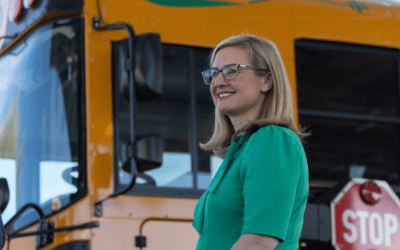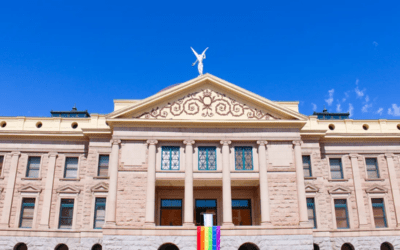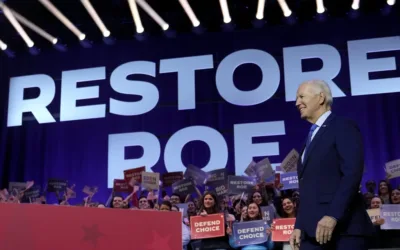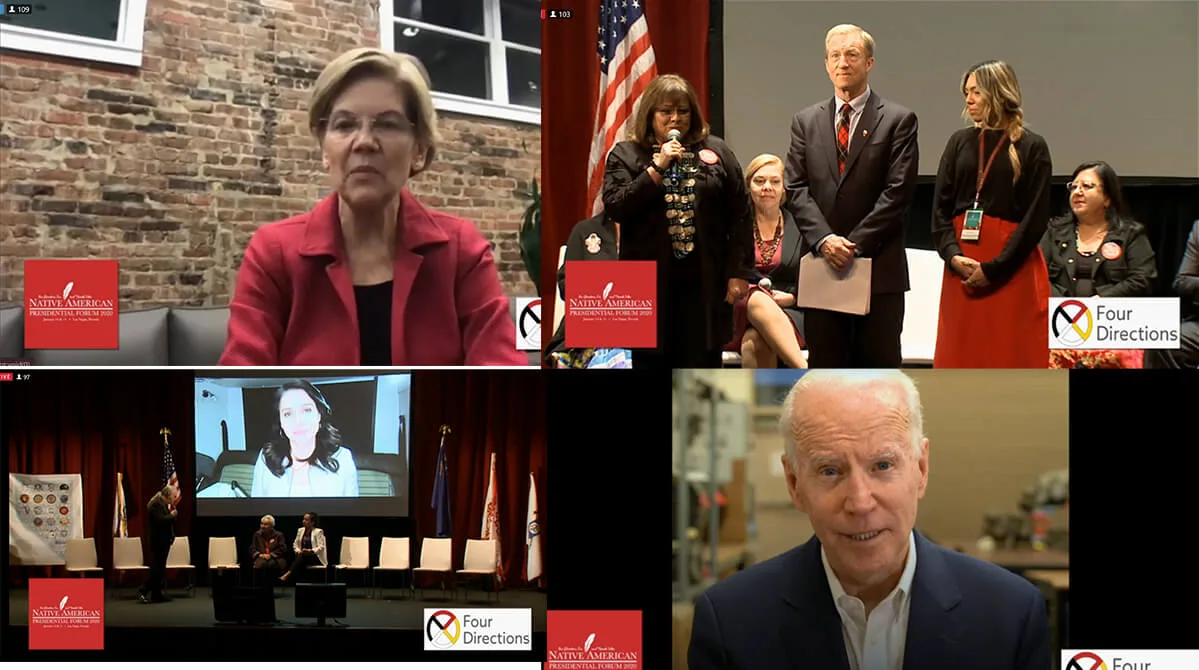
(Clockwise from top left) Sen. Elizabeth Warren, Businessman Tom Steyer, Fmr. Vice President Joe Biden, and Rep. Tulsi Gabbard talking to the Native American Presidential Forum in Las Vegas, Nevada. (Taken from a live stream by Four Directions)
Six Democratic presidential candidates participated in the Native American Presidential Forum 2020, but only one was actually present.
Whether in person, by feed, or pre-recorded message, six Democratic presidential candidates attempted to demonstrate this week how they could advocate for Indian Country during the Native American Presidential Forum 2020.
The two-day event, held at the University of Nevada Las Vegas, gave candidates a second opportunity to meet with members of the Indigenous Community and answer questions about how indigenous issues fit in with their presidential platform.
Indian Country Today Editor Mark Trahant, who moderated the previous forums in 2008 and again last August, told PBS Newshour that the participation of major candidates “brings life to these issues that just don’t get the attention normally in the media.”
During the forum, each candidate was given time to explain their stance on issues such as Missing and Murdered Indigenous Women, Native American representation in Washington, federal funding for treaty obligations, and revoking the Medals of Honor conferred to soldiers who took part in the Wounded Knee Massacre.
Missing and Murdered Indigenous Women
All candidates were either asked or took time to talk about the issue of missing and murdered indigenous women. Data collected by the National Congress of American Indians (NCAI) shows that indigenous women are almost twice as likely to experience rape in their lifetime compared to white women.
Warren and Buttigieg both mentioned addressing the Oliphant Case, where the Supreme Court ruled in 1978 that tribes do not have jurisdiction over non-natives on tribal land.
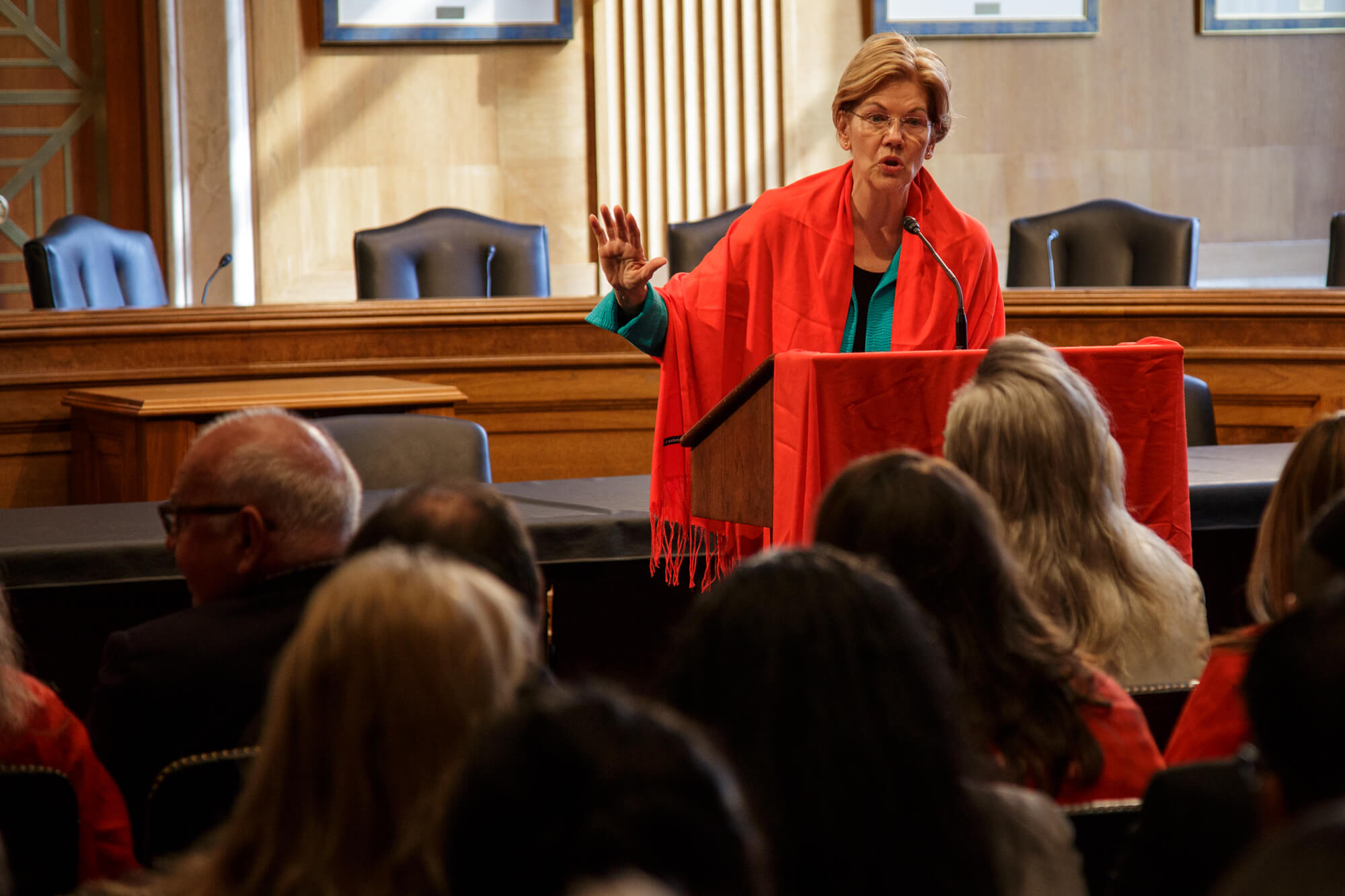
NCAI data also shows 96 percent of the perpetrators of violence against Native women are non-native.
Both the state of Arizona and the federal government have developed task forces to study the issue and make policy recommendations.
“The cost that this incurs on women, on families, on whole communities, cries out for action,” Buttigieg told Forum Moderator O.J. Semons in a pre-taped interview.
Warren, along with Rep. Deb Haaland, D-N.M., are pushing for the re-authorization of the Violence Against Women Act to include provisions for native women. The House version passed in April, with two amendments by Haaland specifically addressing the needs of both urban and rural Native women.
The Senate is currently haggling over two versions of the bill that take different approaches on the issues of gun rights. The National Rifle Association objected to the House version of the bill for closing the so-called “boyfriend loop-hole.” This removes the gun rights of any current or former partners convicted of domestic abuse rather than just married spouses.
Representation in Washington
Candidates also addressed different ways they would give Indian Country a bigger role in Washington.
Currently, there are currently four Native American members of Congress, but none in the Senate. Diane Joyce Humetewa of the U.S. District Court in Arizona is the only Native American on the Federal bench.
Buttigieg said he would hold a state dinner as a way to elevate the nation-to-nation relationship between the White House and Tribal Nations, while Warren pledged to create a permanent cabinet-level White House advisor to directly coordinate with tribes and administration departments that affect Indian Country.
“Indian Country deserves a seat in the highest positions of my administration,” Warren said.
Sen. Bernie Sanders, who appeared via pre-recorded message, echoed Warren’s sentiments.
“An administration that does not look like America, cannot represent America,” Sanders said.
Federal Funding and the Trust Relationship
When asked how they would manage to keep the Trust Relationship strong and tackle chronically underfunded federal programs that affect Indian Country, the candidates’ answers varied widely.
Programs like the Indian Health Service were established to fulfill a promise to provide health care to tribes in exchange for the secession of lands. This is often referred to as the “Trust Relationship” where the U.S. government is supposed to act as a fiduciary for tribes.
However, unlike Medicare, Medicaid, and Social Security, funds for the Indian Health Service are not a mandatory part of the federal budget and not protected from government shutdowns. Tribes have argued this is a violation of the government’s fiduciary responsibility, which, according to the Bureau of Indian Affairs, “protect tribal treaty rights, lands, assets, and resources.”
Warren and Buttigieg both promised to make federal funding for Indian Country programs obligatory.
“This is not a favor. This is a keeping of a promise,” Buttigieg said.
In August, Warren and Haaland began working on the “Honoring Promises to Native Nation’s Act,” which Warren told the forum audience would address promises broken by the United States.
Wounded Knee
At the National Congress of American Indians’ 76th annual convention in 2019, the group passed a resolution urging Congress to revoke the 20 Medals of Honor given to members of the U.S. 7th Cavalry who took part in the Wounded Knee Massacre on Dec. 29, 1890.
On that day, the U.S. Army’s 7th Cavalry gunned down approximately 150 unarmed Lakota Sioux – nearly half were women and children. According to HISTORY, the event is considered an avoidable massacre, and “the last major confrontation in America’s deadly war against the Plains Indians.”
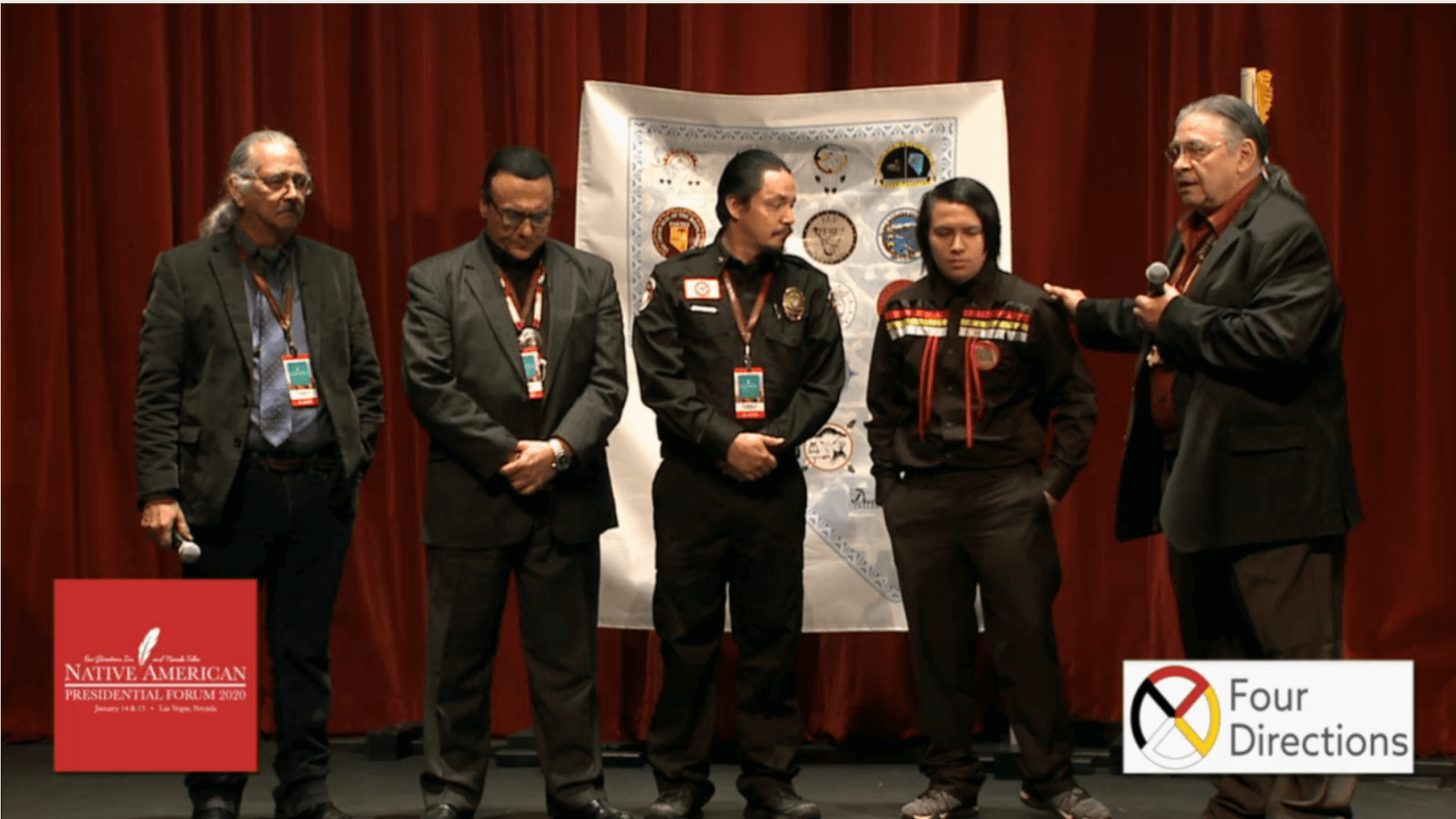
“Allowing the award of the Medals of Honor to the 7th Cavalry for the Wounded Knee Massacre dishonors the Medals of Honor,” the resolution reads.
Buttigieg stated that he would throw his support behind the effort. Warren, who sponsored the Senate version of the “Remove the Stain Act,” also supports the measure.
“The medal of honor is granted for gallantry beyond the call of duty,” Warren said. “What happened at Wounded Knee was not gallant. It was shameful.”
Environment
The Dakota Access Pipeline was also a main talking point among candidates when the forum discussion turned to environmental issues. Businessman and presidential candidate Tom Steyer’s pitch focused around the environment and featured his efforts to stop the Keystone XL pipeline.
“No one gets to poison you for money,” Steyer said at the beginning of his speech to the forum.
Rep. Tulsi Gabbard also referenced Standing Rock during her brief teleconference with the forum, dubbing it a “call to serve.” Standing Rock is part of a grassroots national effort that opposes the pipeline on environmental grounds. Advocates also believe the pipeline construction was disrespectful to several sacred Native American sites.
As for Sanders, the Senator stated his intention is to protect tribal lands from resource extraction companies “whether oil companies and frackers like it or not.”
Showing Up
Although Steyer was the only Democratic candidate to make an in-person appearance, forum attendees expressed their appreciation to the highest polling candidates making some kind of appearance through video conference or pre-taped message.
“Regardless of how we get them here, it doesn’t matter because we’re putting our issues in front of them,” Forum Moderator O.J. Semons told the crowd.
Joking about Former Vice President Biden’s one-minute video that discussed his plans for Indian Country, Semons said, “You can make a lot of promises in one minute, and the cool thing is we’ve got it on tape.”
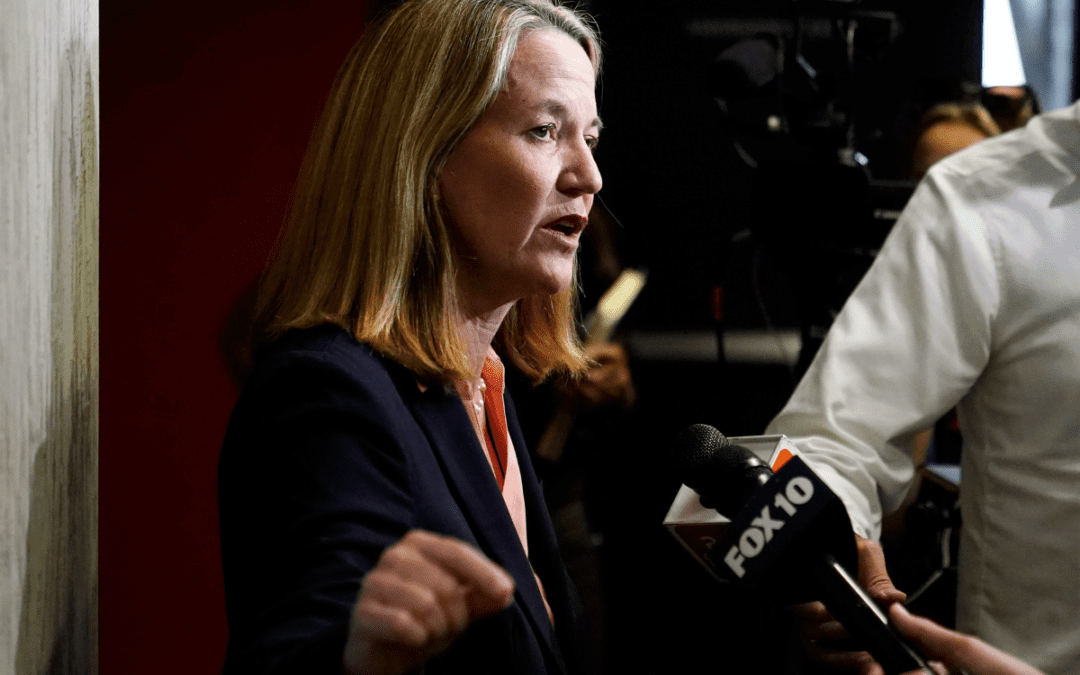
BREAKING: AG Kris Mayes sues rental corporations for conspiratorial price-fixing
It looks like, legally speaking, rent really may be “too damn high.” Arizona Attorney General Kris Mayes announced Wednesday a lawsuit against nine...
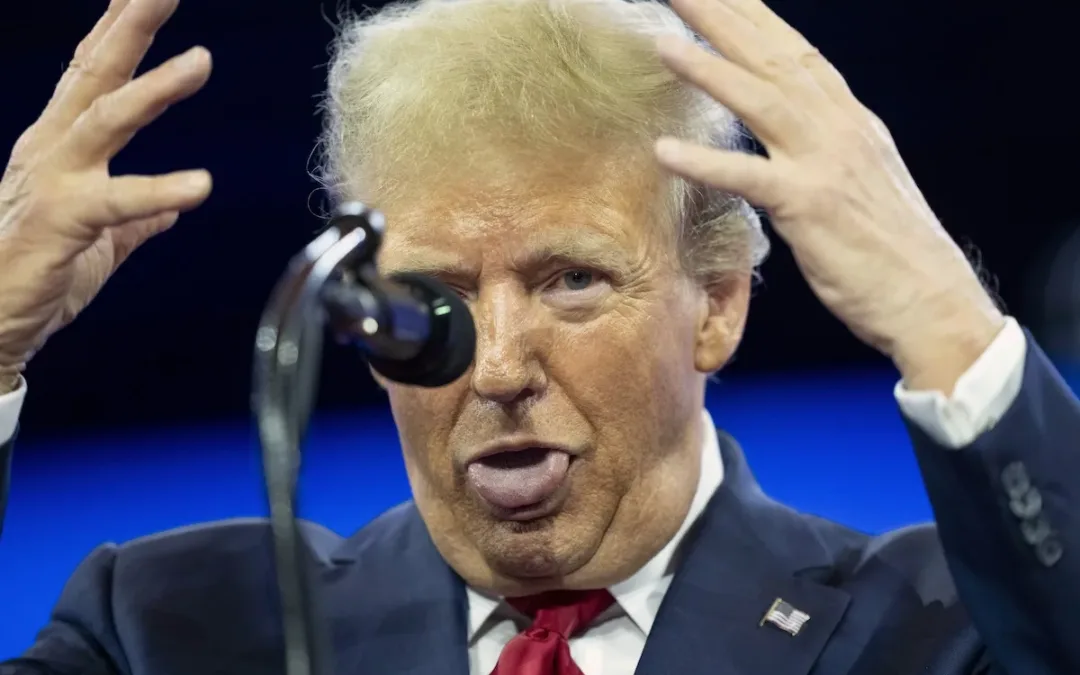
Op-ed: Trump’s journey from hosting The Apprentice to being the biggest loser
Leading up to the 2016 election, Donald Trump crafted an image of himself as a successful businessman and a winner. But in reality, Trump has a long...
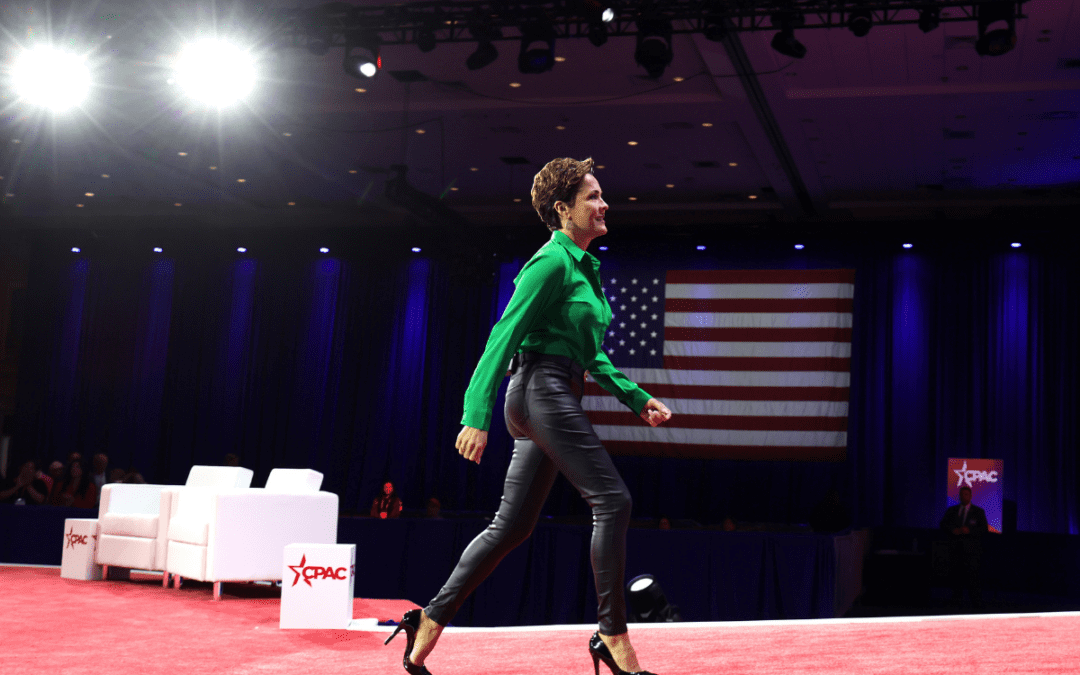
Kari Lake’s plan for the US Senate: ‘The end of democracy’
The world’s most far-right political leaders flocked to National Harbor, Maryland, last week for a conservative conference where attendants idolized...

Flight attendants picket at more than 30 airports in ‘unprecedented’ show of solidarity
Hundreds of flight attendants picketed at Phoenix Sky Harbor Airport last week, calling attention to stagnant wages with low purchasing power, poor...


